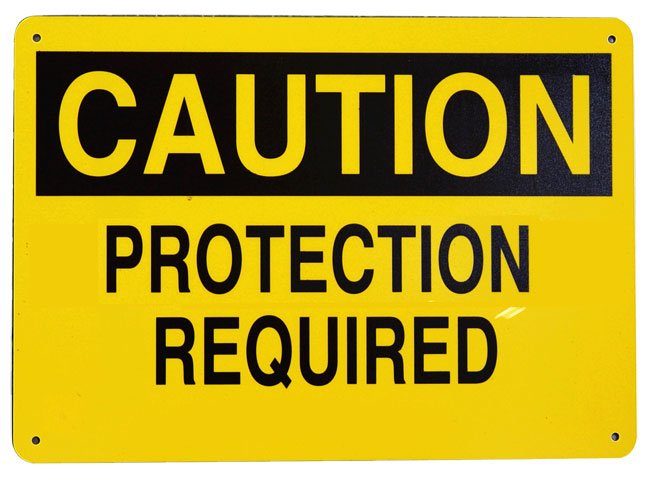Beware: Google Penalties… Is Your Website Safe?
If you look around on a number of SEO forums, you’ll notice every time Google release an algorithm update that there are a slew of site owners complaining about losing traffic.
Let’s be honest… Google employ some of the worlds leading minds to ensure they are not only constantly developing measures to rank sites, but also to ensure they are on the most popular kid in school.
BBC Gets Slapped By Google
One surprise recently was that BBC, a very well known brand backed by a solid global reputation was penalised for unnatural links.
Not only was it a little surprising that such a big company with what you’d expect to have a solid online strategy was penalised, it also showed that if anyone steps over the lines of Google quality guidelines, that they would pay the price.
The BBC website is not alone…
Another popular website, Digg, also got accidentally penalised while Google was scouring the site for spammy submitted links. Earlier, Interflora, a popular flower seller in the UK, was penalised for its use of advertorials to boost its ranking.

What is the message? There are no big brands or big companies when it comes to Google penalties and everyone has to follow the rules.
What does this mean for your company and how do you keep yourself protected and what are the rules?
Fair Playing Field
First things first… Here are the rules – http://support.google.com/webmasters/bin/answer.py?hl=en&answer=35769
These are clearly laid out and do require a little technical know-how to ensure you are covering each step correctly.
A lot of the rules actually listed in this link relate to the sites structure, use of quality content and the type of links that come back to a specific site.
Google treats all sites as equal. Certain sites results in the search engines are different due to their reputation (and other earned measures), but Google will penalise all sites the same way irrespective of the size of the brand.
Matt Cutts, head of the Google webspam team, said that big brands are penalised quite often. They just don’t get into the news much because it’s not in the brand’s best interest.
In reality, if a big guy is doing something illegal, they will be punished. A smaller or medium-sized company can actually outdo a multinational company online just by following a number of basic principles.
This then makes you ask the question… If you’re a big or small brand, what basic steps should you follow to ensure you’re keeping the search engines happy?

Basic Methods To Protecting Yourself
If you are not doing any prohibited SEO techniques, then you have nothing to worry about. If you’ve hired an SEO company and that SEO is using techniques that go against Google’s policy, then you may have an issue.
Here are some sure ways you can avoid being penalised.
• Generate original, quality content. One good way of making sure your site do not get penalised by Google is to deliver only good quality content. This is Google’s primary rule. They want give the public the information they want and need.
Originality is also a big concern. You don’t want to be copying or rewriting content from another website. The best way to handle this is by providing content based on your field of expertise. Your site’s content should be helping prospective customers in a way.
In creating content for your site, think about the users first, not the search engines. Give advice, reviews or opinion on a topic related to your business.
What is quality content? Content that informs and educates the visitor to your site on your niche/ industry. This can be words, sounds, videos and other methods to interact and engage your users. Avoid fluff and duplicate content.
• Stay away from spammy activities. Many SEO activities have been linked to spam and illegal activities which are really not meant for the best interest of the user. And that’s what makes them bad in the eyes of Google.
From Google Guildines… ‘Activities that you should avoid include buying or selling links, linking to web spammers and participating in excessive link exchanges – this is the old practice of ‘You link to me, I link to you.’
Gone are the days when spammy techniques helped sites get ahead in search results. If you do that now, you can get in trouble dealing with penalties. Worst case scenario: your entire site can be taken out of Google search results.
• Google Webmaster Tools is a MUST. Your site administrator should be checking Webmaster Tools regularly to check the health of the site. It is through the Webmaster Tools that you will get notified by Google if there are spammy activities going on in your site. This was how BBC found out about the penalty. Regularly check it to see if there are errors when search engines crawl your site or if there is malware present.
Side Note: this is one example of hundreds of ways you can use Webmaster Tools to enhance your online presence.
• Monitor and protect your site from hackers. Make sure you remove any hacked content that tries to get into your site. You should also protect your site from user-generated spam. Part of the responsibility of a web administrator is to monitor the site for spammy content. This unwanted content can do a lot of damage to your site. Installing good security will help a great deal in protecting your site from these attacks.
What Can You Do If You Get Penalised?
It’s not the end of the world if you get penalised by Google. There are solutions to every problem including this. Remember the prime rule in Hitchhiker’s Guide to the Galaxy: Don’t Panic!
Here are some important things you can do if you get penalised.
• Reconsideration. Google is not unforgiving. All you need to do is look for the spammy links or content in your website. Have them removed – you might need to contact a website to remove the unnatural link to your site.
You then submit a reconsideration request to Google. The reconsideration request can be done through Google Webmaster Tools. Your SEO should have this as a minimum requirement. If not, it’s time to move on.
Here’s a direct link to a reconsideration request form – https://www.google.com/webmasters/tools/reconsideration
• Get other venues to get traffic to your site. If your site’s been removed from Google search results, you can still get traffic while you fix the problem. This is why social engagement is very important.
If you have a good amount of followers on social platforms like Facebook, Twitter and LinkedIn, your site can still get the traffic you want. It’s a good backup plan and will go handy in times like this.

The trick to pleasing Google and search engines is simple. Think of your users, be honest and keep it clean. In other words – Keep It Real!
SEO is always an organic process that succeeds through honest efforts. Don’t be fooled by shortcuts and promises of instant results.
It can be a jungle out there if you don’t know where to look for help. Develop a trustworthy SEO strategy that’s good for users and eventually good for you. Google wants to help businesses and customers get the best from the search engines. This will ensure you’re getting the right message across and pleasing the Google Gods at the same time.



